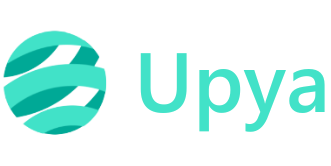Safe drinking water carbon projects have the power to deliver both climate and social benefits. By reducing the need to burn wood for boiling water, they cut emissions, protect forests, and improve community health. Yet despite this potential, many projects still struggle to scale because of fragmented systems, paper-based records, and costly MRV requirements.
Project teams often juggle scattered tools, paper records, and inconsistent data systems. This slows down progress, increases costs, and undermines the credibility of carbon outcomes.
So where are the bottlenecks?
The Problem
- Paper-based data collection → Still common in the field, paper forms are error-prone and difficult to verify. Even when projects use Excel, datasets quickly become too complex to manage without coding skills that only specialists possess.
- Disorganized household data → Without unique IDs linking filters to households, projects risk double counting, weak verification, and confusion about who received which asset. As projects scale, distribution records become harder to track.
- Remote blind spots → For managers based outside the field, monitoring project progress is difficult without reliable, real-time data.
- Fragmented systems → Baseline surveys, verification data, SDG tracking, and asset distribution often sit in separate tools. When only a few people manage the project, their departure can leave gaps in knowledge if documentation isn’t consolidated in one structured system.
- High MRV costs and delays → Meeting Gold Standard™ and other certification requirements can be overwhelming. Disorganized reporting often means lengthy fieldwork, repeated auditor queries, and back-and-forth corrections that drive up costs.
These challenges don’t just waste time, they limit scale and reduce confidence in carbon credits.
The Solution: Digitalizing with Upya
Upya helps project developers streamline the entire workflow with a single digital platform:
✅ Gold Standard™ surveys digitized — Baseline, hygiene, usage, project, and water consumption field tests are all available in-app for field staff. Managers can validate submissions remotely, approve or reject data, and request recollection if inconsistencies appear.
✅ CRM with unique beneficiary profiles — Each household has a dedicated profile linking demographic data, SDG progress, benefit-sharing events, and survey responses. Data types include photos, GPS, text, numeric, NFC, Bluetooth, and more — ensuring full traceability.
✅ Inventory module — Track safe water filters from distribution to usage, including swaps and maintenance throughout the project lifecycle.
✅ Near real-time data collection — Field staff can collect data offline and sync later. Remote teams gain near-instant access for faster validation, decision-making, and feedback loops.
✅ Audit-ready projects — With all field data stored in one structured system, projects are easier to validate with auditors and report to investors, committees, and standards bodies.
✅ Seamless Team Collaboration & Knowledge Retention — Upya ensures that all project data, surveys, and documentation are stored in one structured platform. This reduces dependency on individual staff, prevents knowledge gaps when team members leave, and guarantees continuity across the project lifecycle.
The Impact
By moving safe water projects onto Upya’s digital platform, developers can:
- Scale operations faster and more reliably.
- Reduce MRV costs while speeding up verifications.
- Strengthen credibility with transparent, audit-ready data.
- Deliver higher-quality carbon credits to the market.
Safe drinking water projects are about more than health, they’re a proven climate solution. With the right digital tools, they can grow sustainably, meet certification standards, and maximize both social and environmental impact.
